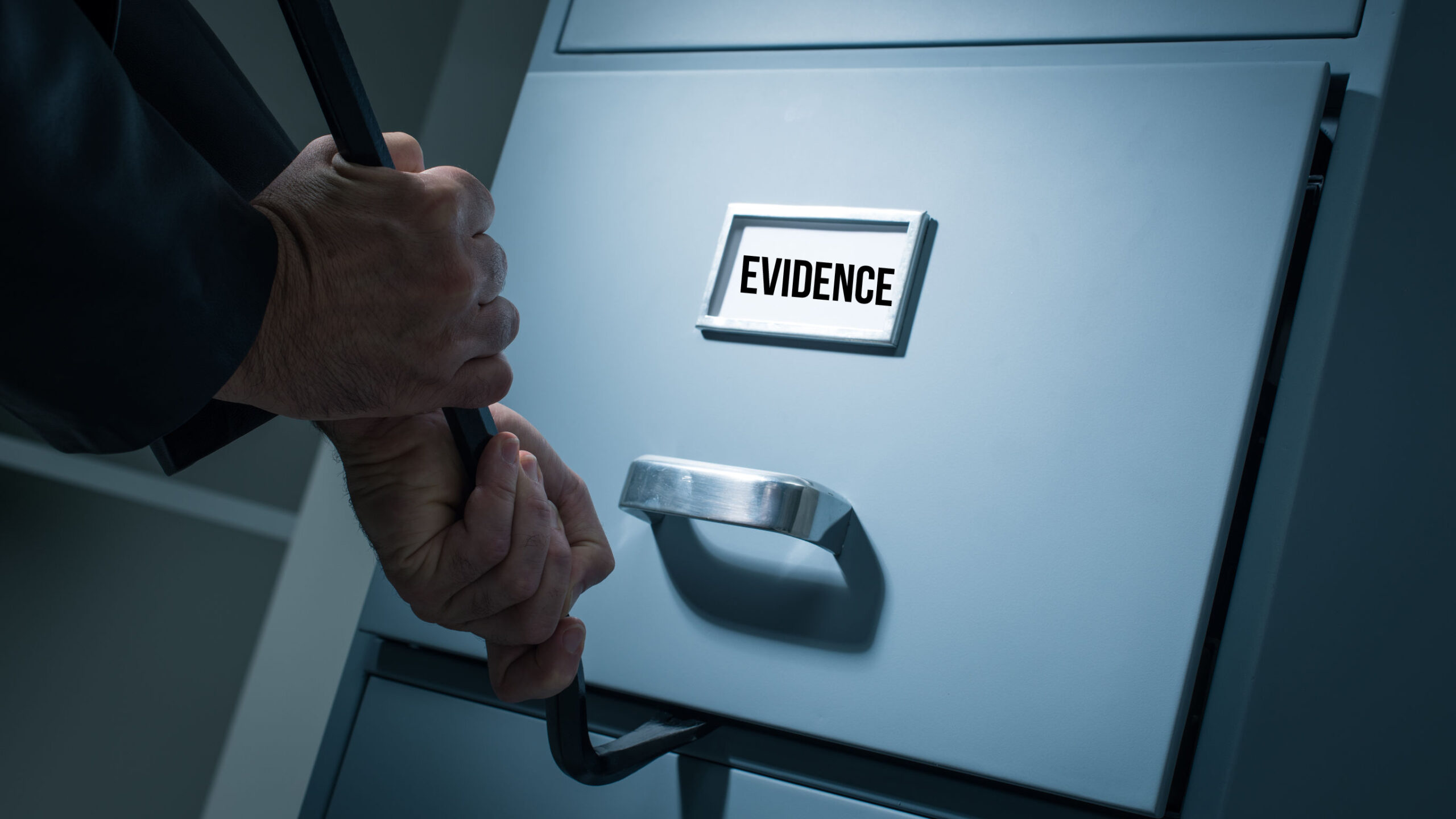
There are many interesting and exciting movies and television shows about crimes and trials. A common conceit in these stories is when either the defendant or prosecutor maintains that someone somehow destroyed a vital piece of evidence or altered it in some way to affect the trial’s outcome. In other words, they claim that someone tampered with evidence.
Tampering with evidence is a crime and every state, as well as under federal law.
Let’s take a look at Texas’ Criminal Evidence Tampering Law and discuss why our state would probably not criminally charge an individual who accidentally destroyed evidence - as well as how to fight back if you believe you fall into this category.
Evidence Tampering in Texas
Texas Penal Code Subsection 37.09, entitled Tampering with or Fabricating Physical Evidence, essentially states that a person tampers with evidence when they
1) deliberately destroy, suppress, or hide; or,
2) prepare, offer, or in any way use any record or document (or anything whatsoever, really) to purposefully alter an investigation or any kind of official proceeding’s direction or result, as well as any later or related investigations or official proceedings.
Examples of evidence tampering include:
- Swallowing drugs or flushing them down a toilet
- Tossing a gun out of a car or into a body of water
- Shredding or burning documents
- Burying a dead body
This is a third-degree felony, which includes between 2-10 years in prison and a fine up to $10,000. If, however, the individual tampers with a corpse, it is a second-degree felony, which includes between 2-20 years in prison, as well as a fine up to up $10,000.
The evidence tampering code additionally states that it is an offense when a person does not report a dead body to law enforcement when they know (or reasonably should know) that
1) law enforcement is not aware; and,
2) where reasonable people would conclude that someone committed a crime.
This is a Class A misdemeanor, which includes up to a year in prison and/or a fine up to $4,000.
Intent to Tamper with Evidence in Texas
Most crimes require intent or the willful determination to carry out a crime. This sounds straightforward, but scholars and judges have studied the concept for generations. Additionally, there are different types and levels of intent and willful determination, and scholars and judges have analyzed those for years, too.
Generally speaking, though, tampering with evidence requires specific intent. This means that, when the perpetrator carried out the crime, they meant to cause a certain outcome.
So, as the Texas Penal Code Subsection 37.09 (“evidence tampering code”) clearly demonstrates, when the state or federal government prosecutes an individual with evidence tampering, it must show specific intent or that they intended to purposefully alter an investigation or any kind of official proceeding’s direction or result, as well as any later or related investigations or official proceedings.
In short, accidentally destroying evidence should not trigger a criminal investigation. This is something you can use to your advantage if you are facing charges.
Elements of Texas Evidence Tampering
Crimes also require that certain elements be present. The prosecutor must prove these elements to the jury or judge in order to convict a defendant.
A Texas prosecutor must prove the following four elements:
- Intent (see above)
- Knowledge. That the accused believed their actions would influence an investigation or official proceeding
- Evidence. This refers to the tampered item and incorporates anything that could potentially be produced in an investigation or official proceeding
- Awareness of a Potential or Pending Investigation. That the accused tampered with the evidence because they anticipated an investigation or official proceeding
Exceptions and Defenses to Evidence Tampering in Texas
The evidence tampering code does not apply if the document, record, or concealed item was privileged or was one of the parties’ work products. Texas Rule of Evidence 503 defines Attorney-Client privileged communications. The rule also protects communications between a client and their attorney, as well as the attorney’s representatives.

The evidence tampering code also provides a defense to materials destroyed under certain provisions of Texas Penal Code § 43.261, Electronic Transmission of Certain Visual Material Depicting Minors.
Not sure exactly where your acts fall on this continuum? Get in touch with a knowledgeable Texas criminal lawyer as soon as possible to give yourself the best chance at mounting the strongest defense possible.
About the Author:
Brandon Fulgham has an in-depth understanding of both Texas law and Texans themselves. Before practicing law here, he received his undergraduate degree from TCU, and his law degree from South Texas College of Law in Houston. After graduation, he worked in District Attorneys’ offices as a prosecutor, building cases designed to put people behind bars. Now, he uses that knowledge to protect the rights of people in and around Fort Worth, making sure they receive the strongest possible defense when they find themselves on the wrong side of the law. He has been recognized for his work by The National Trial Lawyers, Fort Worth Magazine, and others.